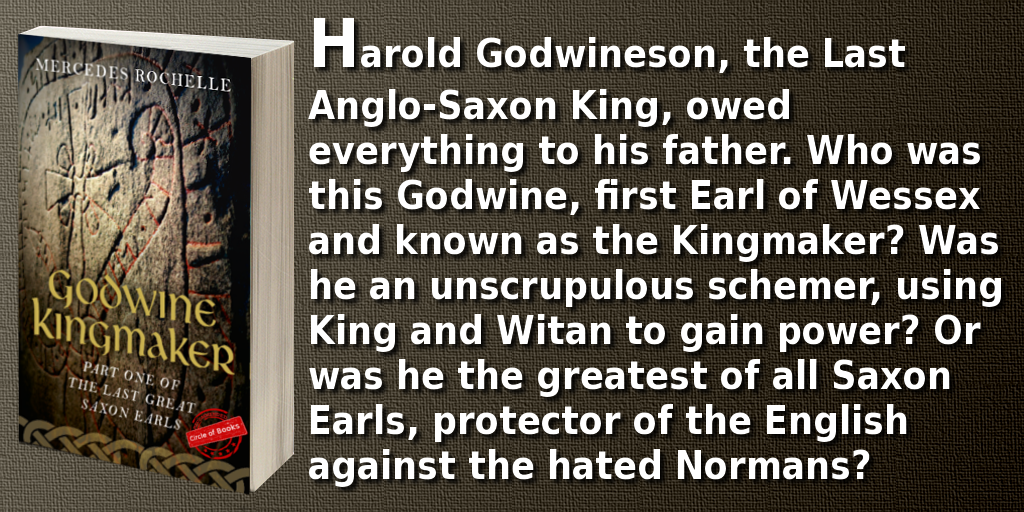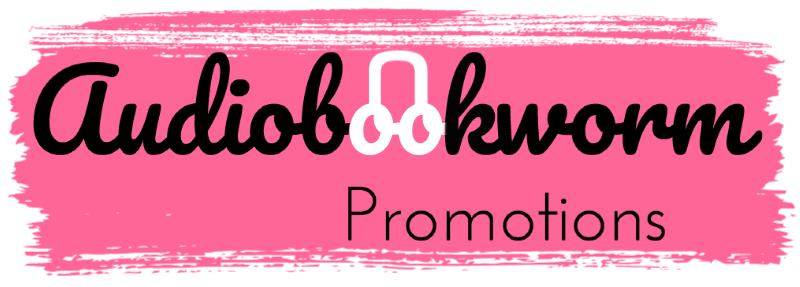
Author: Mercedes Rochelle
Narrator: Kevin E. Green
Length: 10 hours 32 minutes
Series: The Last Great Saxon Earls, Book 1
Publisher: Mercedes Rochelle
Release date: May 14, 2020
Genre: Historical Fiction

Harold Godwineson, the Last Anglo-Saxon King, owed everything to his father. Who was this Godwine, first Earl of Wessex and known as the Kingmaker? Was he an unscrupulous schemer, using King and Witan to gain power? Or was he the greatest of all Saxon Earls, protector of the English against the hated Normans? The answer depends on who you ask. He was befriended by the Danes, raised up by Canute the Great, given an earldom and a wife from the highest Danish ranks. He sired nine children, among them four earls, a queen, and a future king. Along with his power came a struggle to keep his enemies at bay, and Godwine's best efforts were brought down by the misdeeds of his eldest son Swegn. Although he became father-in-law to a reluctant Edward the Confessor, his fortunes dwindled as the Normans gained prominence at court. Driven into exile, Godwine regathered his forces and came back even stronger, only to discover that his second son Harold was destined to surpass him in renown and glory.

Mercedes Rochelle is an ardent lover of medieval history, and has channeled this interest into fiction writing. She believes that good Historical Fiction, or Faction as it’s coming to be known, is an excellent way to introduce the subject to curious readers. Her first four books cover eleventh-century Britain and events surrounding the Norman Conquest of England. The next series is called The Plantagenet Legacy about the struggles and abdication of Richard II, leading to the troubled reigns of the Lancastrian Kings. She also writes a blog: HistoricalBritainBlog.com to explore the history behind the story. Born in St. Louis, MO, she received by BA in Literature at the Univ. of Missouri St.Louis in 1979 then moved to New York in 1982 while in her mid-20s to “see the world”. The search hasn’t ended! Today she lives in Sergeantsville, NJ with her husband in a log home they had built themselves.


I have been narrating audiobooks for nearly 10 years, and have recorded over 80 full length books. I first started 'narrating' books when reading to my two young sons at bedtime, and I read the complete Lord of the Rings to each of them -including character voices! I have many years acting experience, and I have my own recording studio where I record and master my own recordings. I love narrating books for a living and enjoy all genres, fiction and non-fiction alike.


Q&A with Narrator Kevin E. Green
- Kevin, have you always wanted to do this type of work? How did you get started being a voice actor?
- Well, I started actually recording audiobooks a few years before I took early retirement from work, but I always loved reading aloud to my two sons when they were young. I read Lord of the Rings in its entirety twice, once for each boy as they were 5 years apart in age, doing all the voices. I started recording for Librivox, the public domain free site which volunteers record for fun. It's a great site to learn the craft. Then I moved on to Audible/ACX for Amazon and started making a little money, and I am now on Bee Audio and Findaway Voices books as well. And yes, voice actor is the correct term.
- How much time does it take to produce an average hour of audio?
- The first recording can take around twice as long as the finished product, so that’s about 2 hours per hour finished. Then comes editing which takes another two hours, then mastering (getting the levels right for ACX) another 10 minutes, and finally proof listening of the finished file to make sure I’ve not missed anything – extraneous noises, incorrect pauses, so that’s around 5 hours per finished hour, plus the hour I take to read the book first (essential!)
- How do you make corrections? Do you have to start the whole section over or can you insert short phrases?
- When recording I use what is called ‘punch and roll’ which most narrators use. It enables me to stop the recording when I make a mistake, roll the cursor back to the phrase/sentence before the mistake and hit record again. This enables me to record the correct version over the top of the mistake. When editing the finished file, I use a different DAW (digital audio workstation) for editing only. It’s easier to edit in this one than the recording DAW. I can re-record any mistakes in a separate file and copy them into the master file. It can be tricky matching the voice tone though, so it can take several takes before the sound matches the original. Funnily enough, it’s easier to match an accented character than my main narration voice, as that can change slightly over the course of a chapter (especially if it’s a long chapter). Very occasionally I can slot a single word into a phrase, depending on pauses within the phrase.
- What is the ideal chapter length for an audio book?
- I think the ideal chapter length (for me anyway) is around 20-25 minutes. Any longer than that and my voice can start to go off – especially if there is loud dialogue or heavy accents in the chapter, as that can begin to make my throat sore. Straight narration with no accents is a lot easier, 40-50 minutes before I start to feel it. I don’t like taking a rest halfway through as my natural voice can change slightly.
- Is it hard to create different voices?
- Yes it can be tricky to create different voices. The most problematical is where there are a number of similar characters (gender, age etc) in the same scene, and trying to make each voice distinct from the others – there is only so much one set of vocal chords can do!
- What kind of clues do you look for to guide the creation of a voice?
- I tend to have a stock of around a dozen voices which have evolved over the years and I use those in most books. Other voices I have to make up and try to fit them to the type of person I see in my mind, unless the author has been very generous and described the physicality and geographical origin of the character, and even better how their voice sounds! Females are difficult obviously, but I have a passable low register female voice which I can notch up in tone to give a different character. Books with three sisters are a nightmare! I keep an audio file of about 10 seconds of each voice which I keep on hand to constantly refer to as characters change in the dialogue. I don’t mark up the scripts with different colors as some narrators do, as I don’t find it a lot of help, and it’s very time consuming. I might just as well use that time to re-record passages if necessary.
- How many hours a day and in one stretch can you do voice acting?
- On a good day, I spend about 4-5 hours in my recording booth. Around half of those will be actual recording. I can manage about 1-1/2 hours solid speaking before my voice starts to go off. A couple of hours rest and I can probably do the same again. Fortunately most chapters aren’t that long, and I take about an hour of recording for a finished half-hour chapter. The rest of the time is spent on editing, mastering and then proof listening to the final file.

The Battle of Hastings Did Not Take Place at Hastings
By Mercedes Rochelle

Click here to view the full tour schedule!
Plugging you into the audio community since 2016.







No comments:
Post a Comment